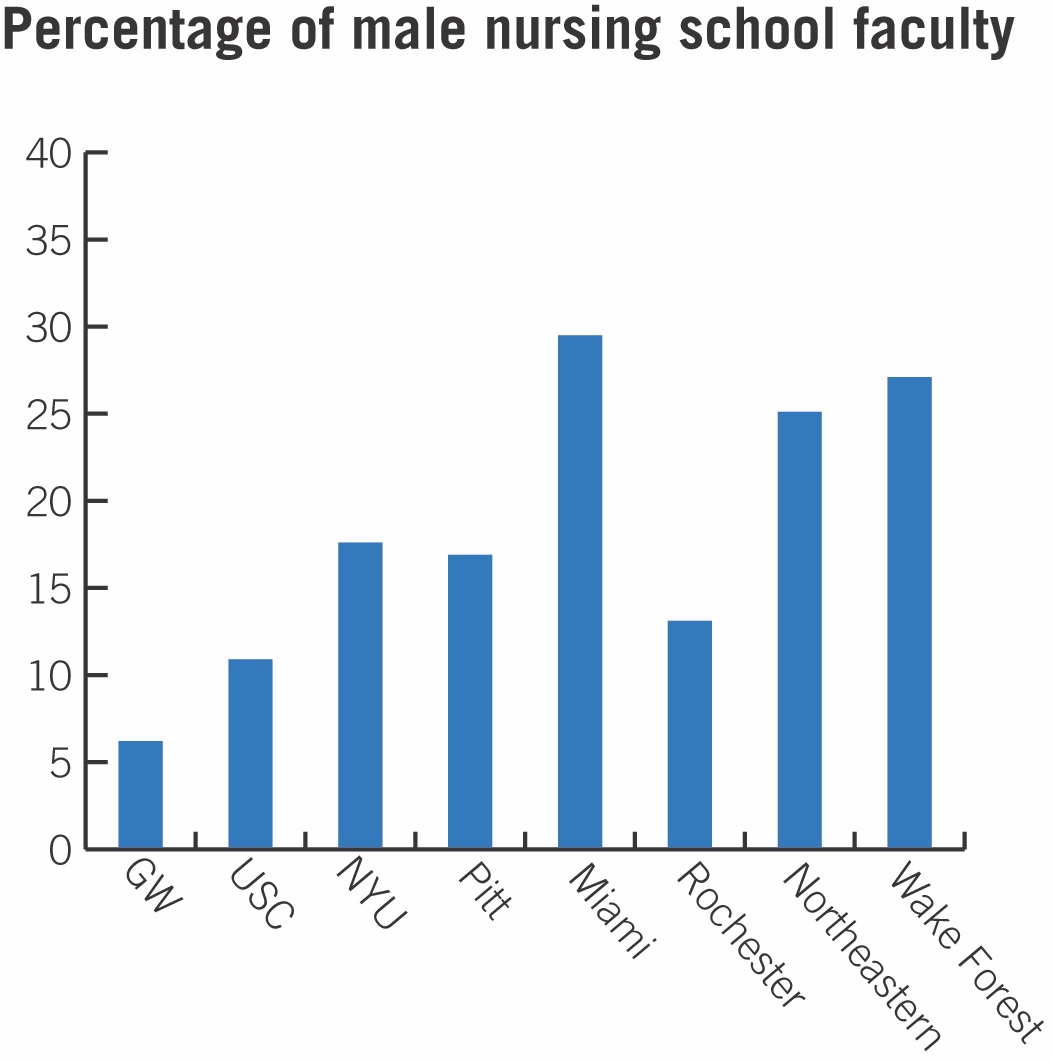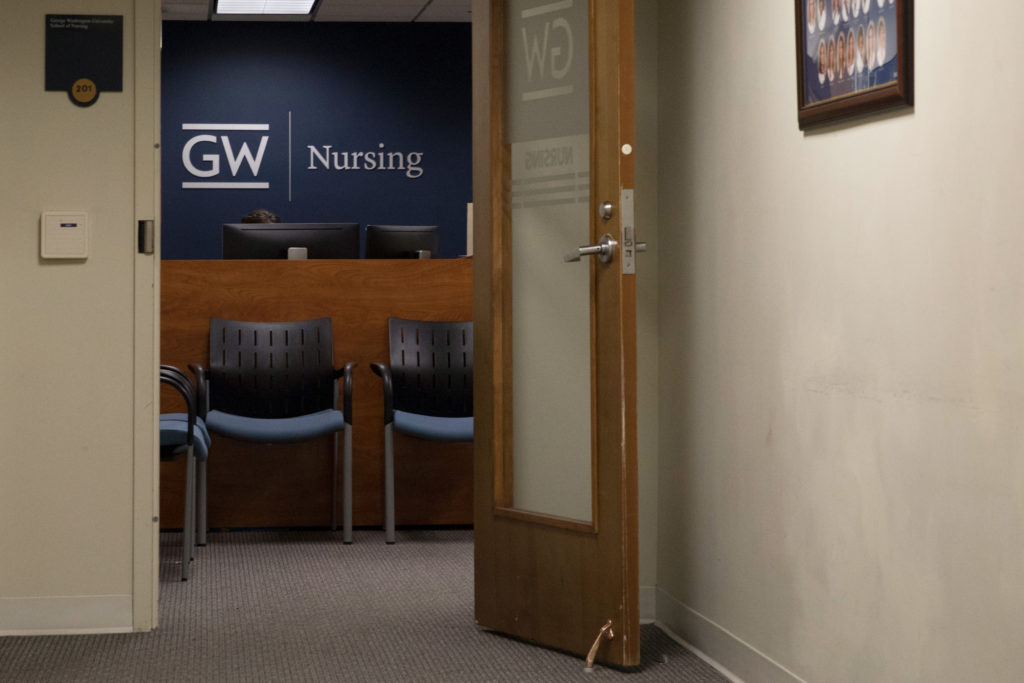Updated: May 2, 2019 at 3:23 a.m.
Despite a nearly 50 percent increase in nursing school faculty members since 2014, GW still lags behind its peers in hiring male faculty.
In 2014, the nursing school hired four part-time male professors out of 55 total faculty members, but five years later, the school employs five full-time male professors out of 82 total faculty members. Faculty and nursing experts said the lack of male faculty decreases the number of role models for male students and limits diversity within the school.
Pamela Jeffries, the dean of the School of Nursing, said hiring more male faculty members will give the increasing male student population in the school more relatable mentorship in a predominantly female field.
“It is important that we have members of our faculty who represent that demographic to give students classroom leaders they can relate to in terms of shared personal and social constructs,” she said in an email.
Six percent of faculty at the nursing school are male, while nursing schools at seven peer institutions maintain an average of about 20 percent. New York University and the University of Pittsburgh have the highest share of male faculty, with 17 and 18 percent, respectively.

Alyssa IIaria | Graphics Editor
Jeffries said a relatively low population of male nursing students will eventually translate to a lower proportion of men in each graduating class, which could skew the ratio of male to female faculty members.
“We are fortunate to have a larger than average population of male nursing students at GW that we hope will close this gap within the profession in future generations,” she said.
Jeffries said the nursing school lists faculty openings on job boards like The Chronicle of Higher Education, Inside Higher Education and Higher Ed Jobs to reach “a broad pipeline of candidates” across the United States. She said faculty and officials in the nursing school also network with male attendees at nursing conferences.
“The learning environment for our predominantly female student body is enriched as well through exposure to the teachings and contributions of faculty from all backgrounds, including males,” she said.
Mark Tanner, the assistant dean of the Bachelor of Science nursing program and an associate professor of nursing, said male students currently do not have a “role model” to connect with. Tanner said male students feel more comfortable reaching out to male professors because of their “shared life experience” as men.
“The experience of being a male in our society is inherently different than the experience of being female, so I do think that individuals who identify as male bring different worldviews to the field of nursing,” Tanner said in an email.
David Keepnews, a professor of nursing and health policy, said there are no overt barriers to men joining the nursing school faculty, but increasing male faculty numbers is important to remind male students they are “welcome” in a female-dominated field. Keepnews said male nurses were viewed as “odd” and “unusual” in the past but now comprise a steadily growing proportion of nurses.
In 2011, about 10 percent of registered nurses were male, compared to roughly 3 percent in 1970, according to the Health Career Institute.
“I think the real challenge is in making it clear that nursing is a great career option for people, regardless of gender, who are smart, serious and who want to apply scientific knowledge and compassion to make a difference in people’s lives,” Keepnews said.
Fidelindo Lim, a clinical associate professor at New York University, said a higher number of male faculty has increased the number of male mentors. Lim said an NYU student-led group called Men Entering Nursing provides a forum for male nursing students and faculty to socialize with one another, which can encourage them to stay in the field.
“As we see more men seek a career in nursing, a more balanced gender distribution among the faculty will add value to their education, not just in the diversity of gender, but in the diversity of thought,” he said in an email.
Jacqueline Dunbar-Jacob, the nursing school dean at the University of Pittsburgh, said nursing schools should recruit more male faculty to give all nursing students the opportunity to work with a group of nurses that will reflect the male role models they may encounter in the workplace.
“This is important to the overall nursing workforce, to the diversity of thought about the profession and to broadening the accessibility to a wonderful career,” she said in an email.
This post was updated to clarify the following:
Officials hired four part-time male faculty in 2014 and now employs five full-time male faculty.





